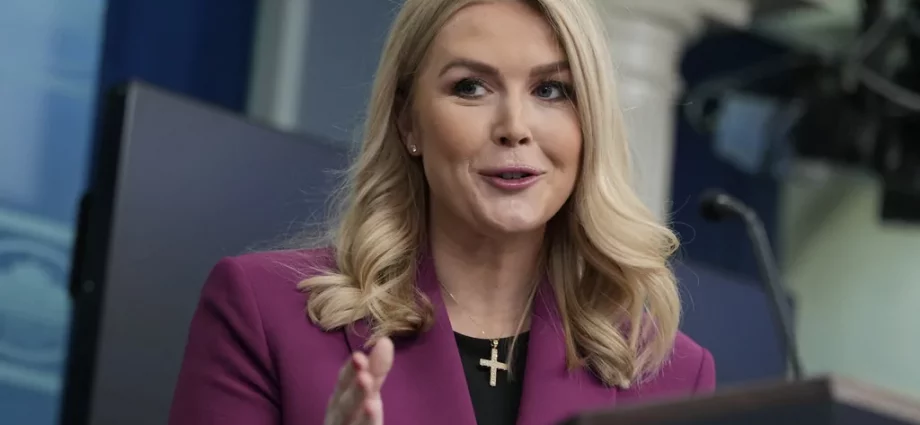White House press secretary Karoline Leavitt said tariffs would draw a line between foreign and American products.
Wednesday is the first day of the 10% tariffs against Mexico, Canada, and China and the 25% tariff on foreign automobiles. Even though the tariffs have not gone into effect, the stock market has had bearish reactions as the S&P 500 recorded its fifth consecutive week of decline last Friday.
“President Trump doesn’t want American industries to survive. He wants them to thrive,” Leavitt said Monday on Fox News’s America’s Newsroom. “Wednesday will be liberation day in America, as President Trump has so proudly called, it because he is going to end the decades of unfair trade practices that have been ripping off American workers. It’s hollowed out our middle class. Turn the American heartland into an American wasteland where jobs have gone overseas.”
“Products are made with foreign hands instead of American hands. That is going to end on Wednesday. The rest of the world is going to feel what the American public has felt for decades,” she continued.
Meanwhile, Leavitt defended Tesla CEO Elon Musk, whose company has faced increasing backlash for his role as a senior adviser to President Donald Trump and the face of the Department of Government Efficiency. The press secretary dismissed allegations from protesters that Musk has been working to “dismantle Democracy” and instead pointed to the good the cost-savings efforts are making.
“Our government will fail if we continue to go down the road of bankruptcy that we’ve been heading on for decades,” Leavitt predicted.
JAPAN AND EUROPE STOCKS FALL AHEAD OF TRUMP’S ‘LIBERATION DAY’ TARIFFS
Tesla will notably be saved from tariffs as its electric vehicles are manufactured in the United States. The company is the only car manufacturer building electric vehicles in California.
According to an estimate by the nonpartisan think tank Tax Foundation, Trump’s latest tariffs against Mexico, Canada, and China alone could raise taxes by more than a trillion dollars between 2025 and 2034 if they continue that long. These tariffs are largely meant to stop Chinese-produced fentanyl from being trafficked at the southern and northern borders. However, Trump has promised that the automobile tariffs will be permanent.



